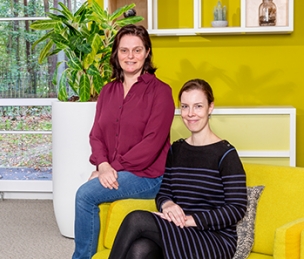Working at the MPI
What would we be without language? What would science be without language? How would we be able to communicate without language?
Our ability to communicate with each other, our ability to organise our thoughts, is really at the heart of what makes us human.
Without language, we would not be able to share knowledge, accumulate knowledge, and exchange information. These are crucial aspects of modern life. Therefore, it is essential for understanding where we are in modern society and in our culture to really understand the basic capacity that underlines all this, and that is human language.
About the Institute
The Max Planck Institute in Nijmegen is entirely devoted to psycholinguistics – the study of how we produce and understand language, and how we acquire these skills as first or second language learners. Our MPI is one of the few institutes of the Max Planck Society located outside Germany.
Ever since the Institute was established in 1980, our researchers have been pursuing answers to questions such as: How do our minds and brains process language? How does language interact with other aspects of the mind? And how we can learn completely different languages?
We are located on the Radboud University campus, and have close collaborative links with the Donders Institute for Brain, Cognition and Behaviour and the Centre for Language Studies, both part of Radboud University.
Multidisciplinary research
The study of language is thoroughly multidisciplinary. Our researchers have backgrounds in various disciplines, ranging from anthropology, linguistics, and psychology to neuroscience, genetics, computer science, and archiving technology.
Our Institute consists of five scientific departments as well as a number of research groups and the International Max Planck Research School.
International atmosphere
The MPI for Psycholinguistics has a very international atmosphere. Our researchers and operations staff come from all over the world - around 25 nationalities are represented! - and we have many active partnerships with colleagues in the UK, Europe, the USA, Australia, Korea, China, and Japan. And it goes without saying that we also collaborate with other Max Planck Institutes.
What our employees say
|
Maggie Wong, Postdoctoral Researcher, Language and Genetics Department: |
|
Christina Papoutsi, PhD Student, Psychology of Language Department: One thing that makes the MPI stand out is the collaborative and interdisciplinary environment. It's great to work with researchers from diverse backgrounds, which has created an atmosphere of intellectual curiosity and innovation. The Institute offers many opportunities for professional development, which has broadened my perspective and helped me develop new skills. Overall, working at the Max Planck Institute for Psycholinguistics has been a stimulating and enriching experience, and I am grateful for the opportunity to be part of such a dynamic and innovative research community.” |
|
Jan Achterberg, (former) Facility Manager, Operations department: |
All of this makes the MPI for Psycholinguistics in Nijmegen a fantastic place to work!
If you are interested in working at the MPI, check out our current job openings to see if there is a suitable position available for you.




Share this page